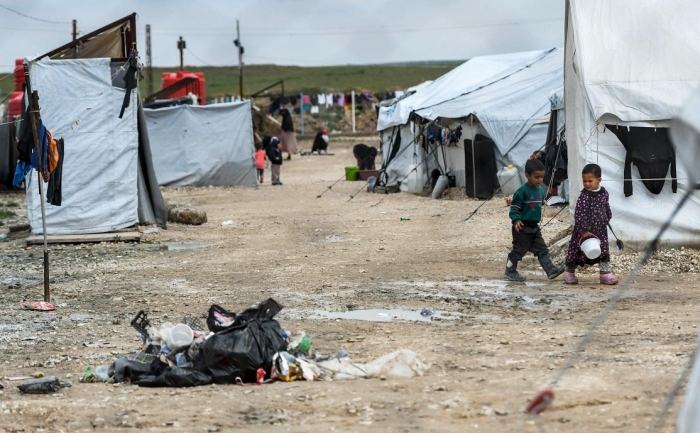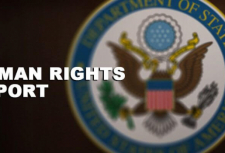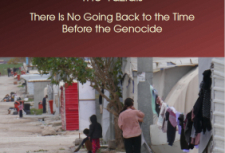The number of refugees returning to the Kurdistan camps exceeds the number of those who leave the camps, says the head of the camp

The number of refugees (IDPs) returning from Mosul to camps in the Kurdistan region is increasing due to lack of basic services and security concerns.
Although more than two years have passed since Iraqi Mosul was liberated from the so-called is, people continue to leave their homes and return to camps inside the Autonomous Kurdish region.
According to Rashid Darvesha, chief inspector of the camps Hazira and Hassanen to recent incidents with security in the liberated areas daily in camps in Erbil back at least three Yazidi families but now the figure is 5 families a day.
"The process of returning refugees from Kurdistan camps to liberated areas is declining as only one or two families return to their homes every day," darves Told local media.
Darves said the recent increase in is attacks in Nineveh Governorate, as well as the lack of basic services during the summer heat, are all factors that encourage IDPs to return to camps in Kurdistan.
"In early 2019, humanitarian aid declined sharply, with the exception of the Iraqi Ministry of displacement and migration (MoDM), which sends food every month,” darves Said.
A recent report by the joint crisis coordination Centre (JCC) of the Kurdistan regional government (KRG) indicates that return migration exceeds the number of people leaving the camps.
According to a JCC report, in 2018, more than 28,000 people returned to the camps with most of them from Nineveh. In addition, more than a million IDPs remain in Kurdistan, both within the camps and among the host communities.
Former Iraqi Prime Minister Haider al-Abadi announced a "final victory" over ISIS in December 2017, when Iraqi troops kicked out the last remnants of the country, three years after the group's militants seized about a third of Iraq's territory.
After the military victory over the extremist group, hundreds of thousands of internally displaced persons began to return to their homes. However, over the past two years, the same Yazidi refugees have returned to camps in Kurdistan after unsuccessful attempts to return to their areas of origin.
Through its dormant cells, is continues to carry out rebel attacks, ambushes and kidnappings in and around Nineveh, threatening stability in the region.
Kurdistan24.net
Tags:
The number of refugees returning to the Kurdistan camps exceeds the number of those who leave the camps, says the head of the camp

The number of refugees (IDPs) returning from Mosul to camps in the Kurdistan region is increasing due to lack of basic services and security concerns.
Although more than two years have passed since Iraqi Mosul was liberated from the so-called is, people continue to leave their homes and return to camps inside the Autonomous Kurdish region.
According to Rashid Darvesha, chief inspector of the camps Hazira and Hassanen to recent incidents with security in the liberated areas daily in camps in Erbil back at least three Yazidi families but now the figure is 5 families a day.
"The process of returning refugees from Kurdistan camps to liberated areas is declining as only one or two families return to their homes every day," darves Told local media.
Darves said the recent increase in is attacks in Nineveh Governorate, as well as the lack of basic services during the summer heat, are all factors that encourage IDPs to return to camps in Kurdistan.
"In early 2019, humanitarian aid declined sharply, with the exception of the Iraqi Ministry of displacement and migration (MoDM), which sends food every month,” darves Said.
A recent report by the joint crisis coordination Centre (JCC) of the Kurdistan regional government (KRG) indicates that return migration exceeds the number of people leaving the camps.
According to a JCC report, in 2018, more than 28,000 people returned to the camps with most of them from Nineveh. In addition, more than a million IDPs remain in Kurdistan, both within the camps and among the host communities.
Former Iraqi Prime Minister Haider al-Abadi announced a "final victory" over ISIS in December 2017, when Iraqi troops kicked out the last remnants of the country, three years after the group's militants seized about a third of Iraq's territory.
After the military victory over the extremist group, hundreds of thousands of internally displaced persons began to return to their homes. However, over the past two years, the same Yazidi refugees have returned to camps in Kurdistan after unsuccessful attempts to return to their areas of origin.
Through its dormant cells, is continues to carry out rebel attacks, ambushes and kidnappings in and around Nineveh, threatening stability in the region.
Kurdistan24.net
Tags:


























